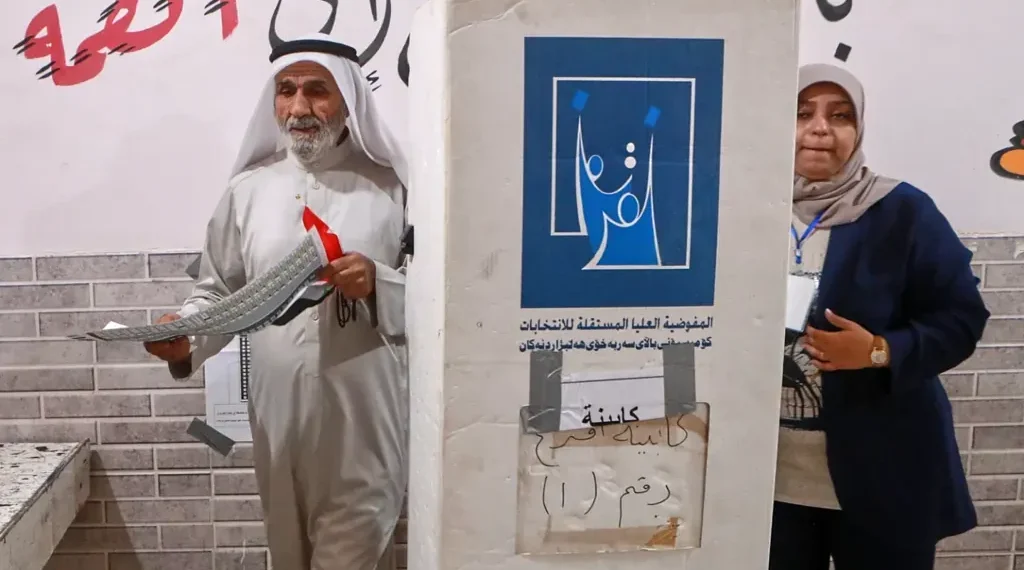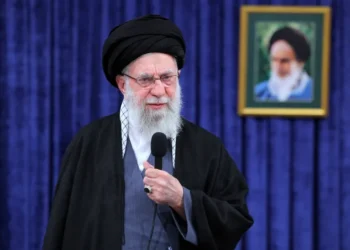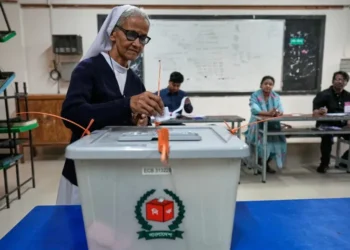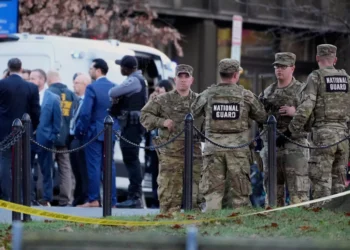Iraqis Vote in Parliamentary Election Marked by Security Measures and Sadrist Boycott
Iraqis went to the polls on Tuesday for parliamentary elections under tight security, with participation affected by a boycott from the influential Sadrist Movement. Early voting saw low turnout, highlighting the political and social tensions surrounding the electoral process.
Security and Voting Conditions
A total of 8,703 polling stations opened across Iraq for the general election. Early voting on Sunday allowed security forces and displaced people living in camps to cast their ballots. Associated Press journalists observed sparse turnout in the early hours of Tuesday, with polling stations nearly empty in some areas.
The Sadrist stronghold of Sadr City, on the outskirts of Baghdad, was heavily secured by Iraqi special forces and federal police. Armored vehicles and Humvees lined main roads, while security personnel patrolled the area. Shops remained closed, and banners depicting Shiite cleric Muqtada al-Sadr holding a weapon reminded residents of the ongoing boycott.
Impact of the Sadrist Boycott
The Sadrist Movement, led by al-Sadr, won the largest number of seats in Iraq’s 2021 parliamentary election but later withdrew from the political process after failed government formation talks. Al-Sadr has since boycotted the political system, calling on his followers to abstain from voting.
At a polling station serving 3,300 registered voters in Sadr City, fewer than 60 people had cast ballots hours after opening. Station director Ahmed al-Mousawi noted, “The Sadrist boycott has had a major impact. In previous elections, there used to be long lines, but today the difference is dramatic.”
Some voters, like 54-year-old Sabih Dakhel, still participated, hoping that new elected officials might improve living conditions. He said, “We were able to vote freely today, but the Sadrist boycott has deeply affected participation. Sadr City feels almost like a lockdown because of Muqtada al-Sadr’s call for his followers to stay home.”
Voter Registration and Turnout
Of Iraq’s 32 million eligible voters, only 21.4 million updated their information and obtained voter cards before the election, a decline from approximately 24 million registered voters in the 2021 election. Early reports suggest turnout remains uneven, with Sadr City and other areas influenced by the boycott seeing particularly low participation.
Regional and International Context
The election comes amid broader regional shifts, including the Gaza and Lebanon conflicts following the Hamas-led attacks on Israel in October 2023, the Israel-Iran tensions in June, and the political developments in Syria last December. Meanwhile, U.S. officials have increased pressure on Iraq to curb the influence of Iran-aligned armed factions, some of whose members are participating in the election.
Legal and Political Challenges
The election could face legal challenges. The head of Iraq’s Supreme Judicial Council stated that the date set for Tuesday’s vote is unconstitutional, as it was initially scheduled for November 24. The ruling may affect the validity or certification of results depending on subsequent legal decisions.
Looking Ahead
As polling continues and votes are tallied, the outcome of this election may reshape Iraq’s political landscape, especially if the Sadrist boycott continues to influence voter behavior. Analysts say the results will have implications for domestic governance, sectarian politics, and Iraq’s relations with regional and international powers.
This article was rewritten by JournosNews.com based on verified reporting from trusted sources. The content has been independently reviewed, fact-checked, and edited for accuracy, neutrality, tone, and global readability in accordance with Google News and AdSense standards.
All opinions, quotes, or statements from contributors, experts, or sourced organizations do not necessarily reflect the views of JournosNews.com. JournosNews.com maintains full editorial independence from any external funders, sponsors, or organizations.
Stay informed with JournosNews.com — your trusted source for verified global reporting and in-depth analysis. Follow us on Google News, BlueSky, and X for real-time updates.














